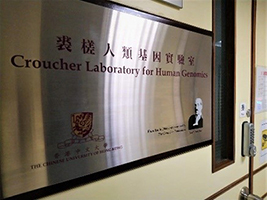
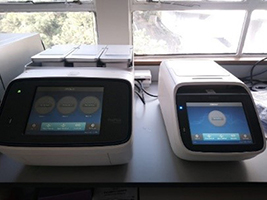
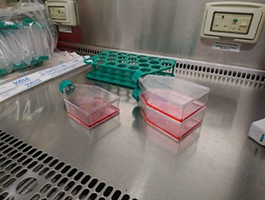
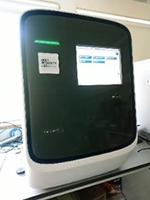
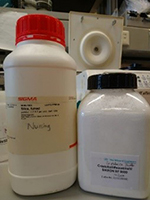
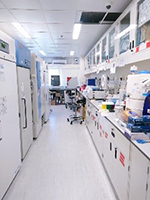
Major Research Projects:
Principal Investigator: Prof. CHAIR Sek Ying
Project Summary:
Autism Spectrum Disorder (ASD), or Autism, is a complex developmental disability that is characterised by difficulties with social and communication skills. The prevalence of autism has increased dramatically since 1980s, and the cause of such a dramatic increase is still unknown. Though some autistic individuals could live independently upon reaching adulthood, most (nearly 60 percent) have difficulties and remain very dependent on their families or social support services, causing a great economic burden to society. However, the exact gene or combination of genes that causes the disorder has not yet been completely deciphered, and the correlation between neuroimaging findings correlated with behavioural phenotypes and molecular studies is still in its infancy stage. There is a high demand for discovering new biomarkers or other predictors to better characterise different subtypes of ASD, identify children at risk, and initiate treatment tailoring to the needs of individual autistic child at the earliest possible stage. Thus, the aim of this study is to identify endophenotypes and genotypes that can be used to further categorise the disorder and help in the discovery of new drug targets if appropriate. The project is ongoing, and participant recruitment is currently underway.
Principal Investigator: Prof. Carmen CHAN
Project Summary:
Silicosis is a prolonged, irreversible and incurable occupational disease, with a significant number of newly confirmed cases in Hong Kong every year. Because of the long latency of the disease, the diagnosis can be missed until a detailed clinical examination takes place as current diagnostic methods do not seem sensitive enough for the early prognostic detection of the disease. For better control of this deadly disease, effective and significant biomarkers could be crucial. Biomarker discovery in the case of silicosis is a fairly recent topic and reported silicotic biomarkers are either not sensitive enough to detect the disease in its early stages or not sufficiently validated. This study describes and follows up the immediate molecular pathogenic events underlying sub-lethal silica polymorphs exposure in human macrophage using the high-throughput RNA-Seq approach. We speculate that a detailed identification and characterisation can be carried out of the immediate pro-inflammatory and pathogenic fibrotic molecular events following the exposure. We also speculate that the data generated in this project will identify novel candidates and strategies for early prognosis, drug intervention and biomarker development in the future. Our results demonstrated that several genes including ATF-3, TLR4, ID1, ID2 and ID3 are potential biomarkers for silicosis.
Related Publications:
Chan, J. Y. W., Tsui, J. C. C., Law, P. T. W., So, W. K. W., Leung, D. Y. P., Sham, M. M. K., Tsui, S. K. W., & Chan, C. W. H. (2018). Regulation of TLR4 in silica-induced inflammation: An underlying mechanism of silicosis. International Journal of Medical Sciences, 15(10), 986-991. http://www.medsci.org/v15p0986.htm
Chan, J. Y. W., Tsui, J. C. C., Law, P. T. W., So, W. K. W., Leung, D. Y. P., Sham, M. M. K., Tsui, S. K. W., & Chan, C. W. H. (2018). RNA-Seq revealed ATF3-regulated inflammation induced by silica. Toxicology, 393, 34-41. https://doi.org/10.1016/j.tox.2017.11.001
Chan, J. Y. W., Tsui, J. C. C., Law, P. T. W., So, W. K. W., Leung, D. Y. P., Sham, M. M. S., Tsui, S. K. W., & Chan, C. W. H. (2017). Profiling of the silica‐induced molecular events in lung epithelial cells using the RNA‐Seq approach. Journal of Applied Toxicology, 37(10), 1162-1173. https://doi.org/10.1002/jat.3471
Chan, C. W. H., Tsui, S. K. W., Chan, J. Y. W., Law, P. T. W., So, W. K. W., Leung, D. Y. P., Sham, M. M. K., & Tsui, J. C. C. (2017). Profiling silica-induced molecular events in human lung cells using the RNA-Seq approach. Journal of Pulmonary and Respiratory Medicine 7 (Suppl. 2), 50. http://dx.doi.org/10.4172/2161-105X-C1-022
Principal Investigator: Prof. Carmen CHAN
Project Summary:
Eczema is a relapsing and persistent inflammatory skin disease affecting about one-fifth of children worldwide. As in other developed countries, the prevalence of this chronic disease in Hong Kong is approximately 30%. Moreover, the number of local cases reported has been on a rising trend since 1995.
The aims of this study:
- To identify early-life environmental and lifestyle risk factors associated with the development of eczema
- To examine the longitudinal association of gut microbiome diversity in the development of eczema in early childhood
- To examine whether microbiome diversity mediates the relationships between the development of eczema and the environmental and lifestyle factors identified
The results of this study demonstrated an association of toll-like receptor 5 polymorphism and eczema development. Moreover, it was found that the abundance of bifidobacteriaum may influence the development of eczema in infants.
Related Publications:
Chan, C. W. H., Leung, T. F., Choi, K. C., Tsui, S. K. W., & Chan, J. Y. W. (2020). Effects of gut microbiome and environment on the development of eczema in Chinese infants. Medicine, 99(21), e20327. https://doi.org/10.1097/MD.0000000000020327
Chan, C. W. H., Law, B. M. H., Liu, Y. H., Ambrocio, A. R., Au, N., Jiang, M., & Chow, K. M. (2018). The association between maternal stress and childhood eczema: A systematic review. International Journal of Environmental Research and Public Health, 15(3), 395. https://doi.org/10.3390/ijerph15030395
Chan, C. W. H., Leung, T. F., Chow, K. M., Wong, C. L., Choi, K. C., & Chan, J. Y. W. (2018). Association of toll‐like receptor 5 polymorphisms (rs5744174 and rs851139) and eczema: A pilot birth cohort study in Hong Kong newborn babies. International Journal of Dermatology, 57(11), e134-135. https://doi.org/10.1111/ijd.14177
Chan, C. W. H., Wong, R. S. M., Law, P. T. W., Sit, J. W. H., & Wong, C. L. (2016, Mar 2-4). A review of external factors contributing to altered gut microbiota for childhood eczema. [Conference presentation]. Sixth Pan-Pacific Nursing Conference and First Colloquium on Chronic Illness Care: Achieving Transformational and Sustainable Development in Health and Social Care, Hong Kong SAR, China.
Chan, C. W. H., Wong, R. S. M., Law, P. T. W., Wong, C. L., Tsui, S. K. W., Tang, W. P. Y., & Sit, J. W. H. (2016). Environmental factors associated with altered gut microbiota in children with eczema: A systematic review. International Journal of Molecular Sciences, 17(7), 1147. https://doi.org/10.3390/ijms17071147
Principal Investigator: Prof. Carmen CHAN
Project Summary:
The application of a 5-year adjuvant tamoxifen therapy is a common practice to prevent recurrence for breast cancer patients after treatment. The relapse rate at 5 years for patients taking adjuvant tamoxifen, a hormonal therapy, is significantly lower than those who did not. However, it is also found that among the patients who received adjuvant tamoxifen therapy, the individual responses varied greatly. These responses include the side effects (symptoms) and the efficacy (recurrence rate). It is also found that the tamoxifen adherence rates among different breast cancer patients receiving tamoxifen are different. However, the relationship is not clear. Genetic polymorphism of some genes (e.g. Cytochrom P450) involved in the metabolism of tamoxifen is also critical for patients’ detrimental response to tamoxifen. This study aims to assess the side effects, drug adherence as well as genetic polymorphism of 20 breast cancer patients receiving tamoxifen therapy. The endocrine symptoms and drug adherence will be scored through interview with standard questionnaires whereas polymorphism of significant target genes will be detected using commercial assay kits. Data will be analysed and then scored. It is hoped that the feasibility of collecting and analysing relevant data for the identification of inter-relationship among gene(s) or biomarker(s), adherence, and symptom response of the patients to tamoxifen can be established. From the results of the study, it was found that the patients had an increase of more than 30% in the scores for several specific symptoms including hot flashes, night sweats, weight gain, mood swings, feeling tense or nervous, difficulty in sleeping and attacks of panic. Moreover, the drug non-adherence, the number of time not taking the drug in the past three months, also increased when the therapeutic time increased.
Related Publications:
Chan, C. W. H., Law, B. M. H., So, W. K. W., Chow, K. M., & Waye, M. M. Y. (2020). Pharmacogenomics of breast cancer: Highlighting CYP2D6 and tamoxifen. Journal of Cancer Research and Clinical Oncology, 146(6), 1395-1404. https://doi.org/10.1007/s00432-020-03206-w
Chan, C. W. H., Miaskowski, C., McCarthy, A., Waye, M. M. Y., Yeo, W., So, W. K. W., Choi, K. C., Tsui, S. K. W., & Chan, J.Y.W. (2020). Tamoxifen-related endocrine symptoms in Chinese patients with breast cancer: Study protocol clinical trial (SPIRIT Compliant). Medicine, 99(8), e19083. http://dx.doi.org/10.1097/MD.0000000000019083
Chan, C. W. H., Tai, D., Kwong, S., Chow, K. M., Chan, D. N. S., & Law, B. M. H. (2020). The effects of pharmacological and non-pharmacological interventions on symptom management and quality of life among breast cancer survivors undergoing adjuvant endocrine therapy: A systematic review. International Journal of Environmental Research and Public Health, 17, 2950. https://doi.org/10.3390/ijerph17082950
Chan, C. W. H., McCarthy, A., Chan, J. Y. W., Chow, K. M., Waye, M. M. Y., Tsui, S. K. W., Yeo, W., Choi, K. C., So, W. K. W., Soo, W., & Miaskowski, C. (2018, Sep 23-26). A feasibility study to evaluate the relationships between endocrine symptoms, drug adherence and genetic polymorphisms in breast cancer patients receiving tamoxifen therapy. [Conference presentation]. International Conference on Cancer Nursing (ICCN), Auckland, New Zealand.
Chan, C. W. H., McCarthy, A., Chan, J. Y. W., Waye, M. M. Y., Tsui, S. K. W., Yeo, W., Choi, K. C., So, W. K. W., Soo, W., & Miaskowski, C. (2017, Sep 23-24). A feasibility study to evaluate the relationships between endocrine symptoms, drug adherence and genetic polymorphisms in breast cancer patients receiving tamoxifen therapy. [Conference presentation]. 3rd Asian Oncology Nursing Society Conference, Beijing, China.
Chan, C. W. H., Chan, J., So, W. K. W., Waye, M. M. W., & Choi, K. C. (2017, Jun 22-24). Evaluation of the impact of genetic polymorphism during adjuvant tamoxifen therapy in breast cancer patients in Hong Kong: A feasibility study. [Conference presentation] 24th Asia Pacific Cancer Conference (APCC 2017), Seoul, South Korea.
Principal Investigator: Prof. Winnie SO
Project Summary:
This pilot randomised-controlled study aims to investigate the acceptability and feasibility of having stabilised rice bran (SRB) as a dietary supplement in healthy adults, and to evaluate its effects on the population of resident luminal bacteria. A total of 15 healthy subjects will be recruited and randomly assigned to two groups. Both groups will consume 40 gm/day SRB for 28 days, but of different brands. Fresh stool specimens will be collected on day 1 before the intervention and day 28 after the last dose of intervention/control food has been consumed. Total microbial DNA will be extracted from the specimens for metagenomics study. The metagenomic data set will be analysed using the mothur. The findings of this pilot study will provide a comprehensive picture of the effects of SRB on the composition of gut microbiome and offer insights into identifying appropriate outcomes and disease population, before a larger scale RCT study.
Related Publications:
So, W. K. W., Law, B. M. H., Law, P. T. W., Choi, K. C., & Chan, C. W. H. (2018). A pilot study to compare two types of heat-stabilised rice bran in modifying compositions of intestinal microbiota among healthy Chinese adults. Advances in Modern Oncology Research, 4(1), 253. http://www.advmodoncolres.sg/index.php/amor/article/view/172/175
Law, B. M. H., Waye, M. M. Y., So, W. K. W., & Chair, S. Y. (2017). Hypotheses on the potential of rice bran intake to prevent gastrointestinal cancer through the modulation of oxidative stress. International Journal of Molecular Sciences, 18(7), 1352. https://doi.org/10.3390/ijms18071352
So, W. K. W., Law, P. T. W., Chan, C. W. H., Cheung, S. C. K., Kwan, H. S., & Chair, S. Y. (2016, Mar 2-4). Effect of heat-stabilised rice bran on gut microbiome composition in healthy Chinese adults: A pilot study. [Conference presentation]. Sixth Pan-Pacific Nursing Conference and First Colloquium on Chronic Illness Care: Achieving Transformational and Sustainable Development in Health and Social Care, Hong Kong SAR, China.
So, W. K. W., Law, P. T. W., Chan, C. W. H., Law, B. M. H., Cheung, S. C. K., & Chair, S. Y. (2015, Nov 21). The utilisation of dietary rice bran in cancer preventive interventions: A literature review. [Poster presentation]. 12th Nutrition & Health Symposium, Hong Kong SAR, China.
Principal Investigator: Prof. Winnie SO
Project Summary:
Colorectal cancer (CRC) is the third most common cancer in the world. Rice bran contain multiple bioactive components that have been shown to inhibit CRC growth. In this project, we aim to investigate the modulation of human stool microbiome profiles by rice bran and the effects of rice bran on inflammation-related markers. This pilot study will be a single-blind randomised controlled trial recruiting 40 patients with high risk of CRC from Prince of Wales Hospital. Participants will be randomly allocated to either the intervention or control groups in a 1:1 ratio. The patients and outcome assessors will be blinded to the group allocation. The intervention group will be given packets of heat-stabilised rice bran of which they will be instructed to take 30 grams per day at 24-hour intervals during the 24-week period. The control group will be provided with a white rice flour placebo, similar in appearance to the intervention group’s rice bran, and be instructed to consume 30 grams of the product per day at 24-hour intervals during the intervention. Both groups will also be instructed not to change their normal daily routines, including their dietary habits and levels of physical activity, throughout the entire course of the intervention. At enrollment, demographic data will be collected by means of an author-developed questionnaire. Blood samples and stool samples will be collected before the intervention (T0), at 6 weeks (T1), 12 weeks (T2) and 24 weeks (T3) thereafter. Total microbial DNA will be extracted from the specimens for metagenomics study. The metagenomic data set will be analysed using the mothur. The results of this study have important implications on promoting healthy food and dietary style especially in Asian countries where rice is the staple food.
Related Publication:
So, W. K. W., Law, B. M. H., Law, P. T. W., Chan, C. W. H., & Chair, S. Y. (2016). Current hypothesis for the relationship between dietary rice bran intake, the intestinal microbiota and colorectal cancer prevention. Nutrients, 8, 569. https://doi.org/10.3390/nu8090569



